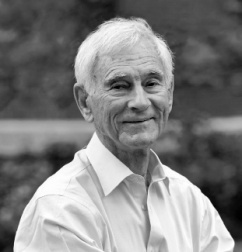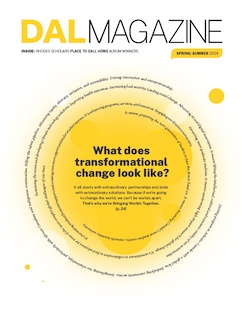It is nothing short of inspiring to learn about the incredible work being done by our alumni to strengthen our communities, both here and abroad. Their stories are proof that it only takes one person to make a difference and to create lasting change.
We thank all members of our community who submitted a nomination for this year’s Aurum Awards program, as well as the ÃÀÅ®×ö°® Alumni Association Awards Committee, who were tasked with narrowing down an abundance of incredible submissions.
If you know an alum who deserves to be recognized for their accomplishments, whether in research and innovation, community engagement and leadership, or for their contributions to the social, cultural, and economic well-being of society, stay tuned for nomination information for the 2025 Aurum Awards, which will open this September.
.Ìý
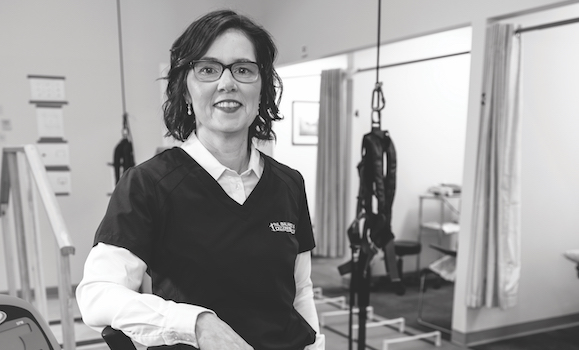
Kim Furlong (BScPT’88, MSc’00) is a physiotherapist, business owner, lifelong volunteer, and advocate for adults and children with chronic health conditions and disabilities. Furlong owns and operates NL Balance & Dizziness Centre, a specialized physiotherapy clinic in St. John’s that treats people who live with dizziness and balance issues. Furlong is also the founder of iBIKECAMP, a non-profit organization dedicated to making cycling accessible to those with disabilities.
Q. What is a challenge you had to overcome?
A. Turning my vision into a reality has been a significant challenge. I wanted to run a balance and dizziness centre that offered the best assessment and treatment services specifically designed for dizzy patients, equipped with advanced technology and staffed with people who have expertise in the field. It was an expensive investment, and the training was challenging, costly, and time-consuming. But I knew the value. Every day we change people’s lives by treating their symptoms and improving their quality of life.
Q. Do you prefer to know the plan or be surprised?Â
A. I am a planner. Knowing the who, what, when, and how has helped me build a successful business and maintain a balanced work and family life.
Q. What aspect of your work do you most enjoy?
A. I take particular pride in offering inclusive community programs that provide opportunities for people with chronic illnesses or disabilities to participate fully in activities that able-bodied folks sometimes take for granted. It is very rewarding to hear my patients express their thanks for restoring and improving their quality and enjoyment of life and discovering that there is help available for their health challenges.
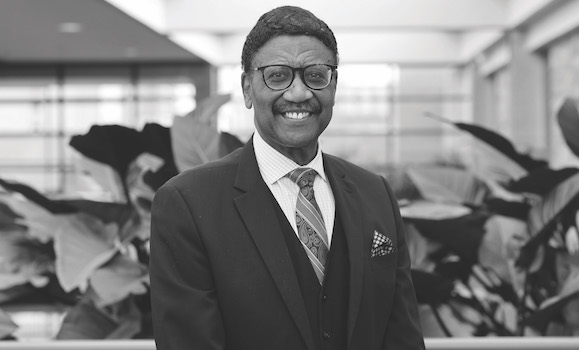
Douglas Ruck (BA’72, LLB’77) is a labour relations and human rights lawyer, former ombudsperson for the Province of Nova Scotia, former chair of the Labour Board of Nova Scotia, and current chair of the Board of Governors at the University of King’s College. Following in the footsteps of his father, the late Senator Calvin Ruck, Doug Ruck’s work identifying and mitigating anti-Black racism has made him a sought-after voice in the social justice and civil rights landscapes.
Q. How do you hope people describe you?
A. As someone who, in some small way, managed to make a difference.
Q. Were you a chatterbox as a child, or were you more introspective?
A. More introspective. In large measure that is because of growing up as one of the only Black children in my Dartmouth, N.S., neighbourhood. A great deal of introspection took place because our family was being watched very closely. How we behaved, how we spoke, how we dressed...it was all significant.
My parents made us very aware of the fact that we could not be freewheeling, even in our own yard. It was assumed that when we came into the neighbourhood we would cause trouble and that our presence in the neighbourhood would lower property values, so we had to be very concerned with how we conducted ourselves.
Q. Do you have a bucket list?
A. I always had a desire to walk along the Great Wall of China. And at one point when I was a kid, I wanted to be a member of the Vienna Boys Choir. My bucket list now is the growing pile of books on my nightstand. I’m slowly working through it, but it’s taking time. The most impressive book I’m reading right now is How to Say Babylon by Safiya Sinclair.
Further reading: Dal alum leads review of systemic discrimination at barristers’ and physicians’ societies
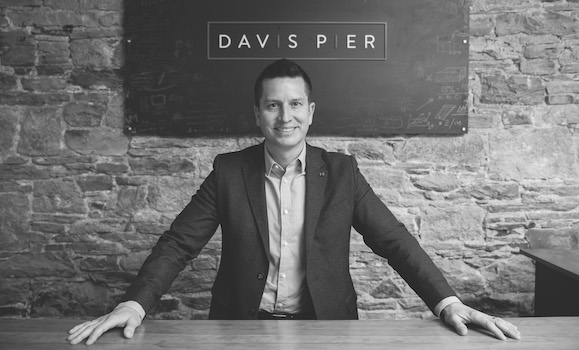
Mike Davis (BEng’01, MEng’08) is president and CEO of Davis Pier Consulting, a social-impact consulting firm founded in Halifax. Davis leads a team of people intent on making the world a better place by engaging communities affected by health-care and social policies in decision-making processes. He also sits on the board of Kids Help Phone, donating his time and talent to improve that organization’s national reach and impact.
Q. How do you define your role within your community?
A. We try to be a voice, almost a translator, between government and community. As an organization, we can help vulnerable communities get their points across with government because we have become a trusted partner. We’ve evolved from a traditional consulting firm model to one that has much more social impact.
Q. What has been your most transformative experience?
A. Understanding the social services system and understanding the complexity of the issues people experiencing poverty face. Seeing how smart and resourceful they are, and seeing how effective it is to involve them in decision-making and designing solutions.
I have every bit of privilege that anybody could have in the world: white male; upper middle-class parents; only child. I try to use that privilege every day through what we’re doing at Davis Pier and in my volunteer work.
Q. What gives you hope?
A. The caring, compassionate, smart young people who work with us.
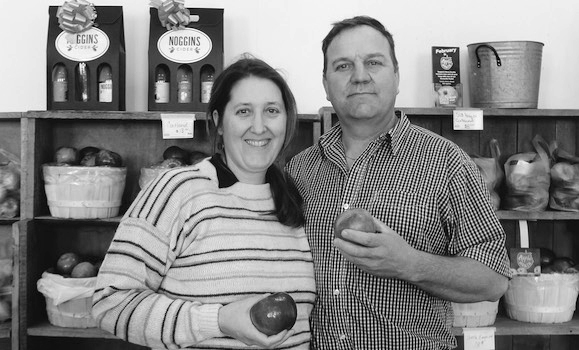
Patricia Bishop (BSc(Agr)’99) and Josh Oulton (DipTech'96) are organic farmers and entrepreneurs at Noggins Corner Farm and TapRoot Farms in Port Williams, N.S., who promote food security through their commitment to sustainability and stewardship. The community shared agriculture (CSA) program they created sees boxes of farm-fresh products distributed to over 400 people weekly. They’ve invested in textile production and are the sole producers in Canada growing flax and spinning it into fibre, which is then used to make linen. They’re also known for their commitment to the fair treatment of Jamaican temporary workers, who help grow and harvest their crops.
Q. What is the best part of what you do?
Josh: Seeing success in growing a good crop. When we all work together to grow a crop and then there’s this bounty... that’s pretty satisfying.
Patricia: I love that we are helping people build a connection with the earth—whether it’s through their relationship with food or their relationship with fibre.
Q. Can you share a moment with a customer that stands out?
Josh: Often, we clear out soon-to-expire produce so we don't waste it. We put it all out for anyone to take for free. One woman came in and filled up her grocery bags and then she just gave me a big hug. She was so happy to have this food. Her appreciation really stuck with me.
Patricia: When we first launched our CSA, 50 people joined immediately just because they wanted to support us and our farming venture and organic growing. And we will often come home and there will be a bottle of jam or something that someone has made with produce from their CSA and they’ve dropped it off to us with a little note of thanks. That is really nice.
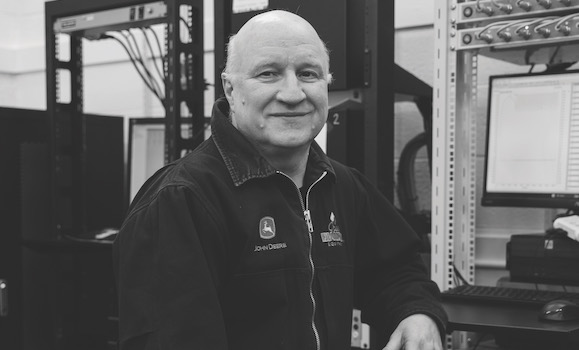
Dr. Jeff Dahn (BSc’78) is a professor emeritus in ÃÀÅ®×ö°®â€™s department of Physics and Atmospheric Science. He is best known for contributing to the development of lithium-ion batteries, which are used in electric vehicles, laptops and cellphones. Since 2016, he has worked with Tesla Motors as that company’s only university research partner, and he is currently trying to figure out how to prove that lithium-ion batteries can last beyond 50 years...without spending 50 years testing them.
Q. What is the best piece of advice you’ve ever gotten?
A. A thing my dad told me: if you’re going to do a job, do it right or don’t do it at all.
Q. Is it ever too late to change your mind?
A. No, and it happens all the time in research—we’ll start a project, and it just doesn’t pan out, and then we have to retrench and go somewhere else. I’m not afraid of being wrong. Certainly, I’ve been wrong many times and I’m one of the first to admit it when it happens.
We have a toy crow in the lab, a little black furry thing, and when people do something silly or wrong, they get the crow. I think I have been the biggest holder of the crow. That’s just the way it is: you have to stick your neck out. Sometimes you want to make progress and do something new and many times it just doesn’t pan out.
Q. Are you an early bird or a night owl?
A. Since my graduate school days, I’ve been an early bird. My research supervisor at UBC was one, and he would get to the lab first and look at all the experimental results. He’d say, ‘Jeff, look at this, look at that, what does this mean,’ and so on, and I decided I didn’t like that. I wanted to be there first so I could see the results first.
Further reading: Powering up: First‑in‑Canada battery innovation centre to provide critically needed facility for research and industrial development
This story appeared in the DAL Magazine Spring/Summer 2024 issue. Flip through the rest of the issue using the links below.

